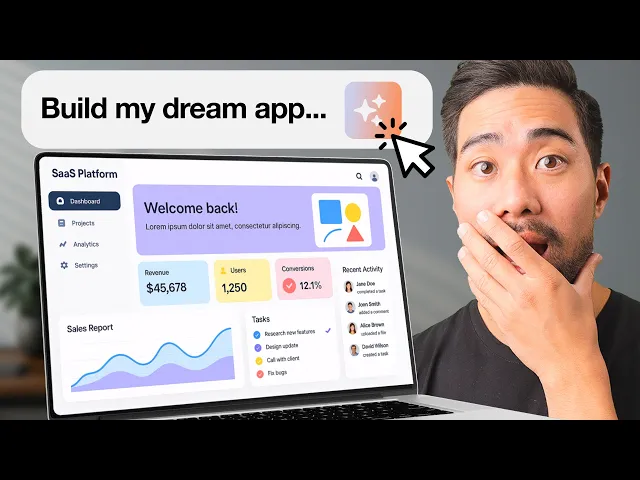This AI App Builder Makes Custom Apps in Minutes (No Coding Needed)

Adalo breaks barriers for non-coders in app development
In a digital landscape where mobile applications represent billion-dollar businesses and essential tools for modern organizations, the barriers to entry for non-technical entrepreneurs have remained stubbornly high. Enter Adalo, a no-code platform that's democratizing app development by allowing anyone to build fully functional mobile and web applications without writing a single line of code. As someone who's watched countless businesses struggle with the technical hurdles of bringing their app ideas to life, I find this evolution particularly exciting—not just for what it enables today, but for how it reshapes who gets to create digital products tomorrow.
Key Points
-
Adalo employs a visual, component-based development approach where users can drag and drop elements to build interfaces that connect to data and respond to user actions—essentially creating the same functionality programmers would code manually.
-
The platform offers multiple deployment options, including native iOS and Android apps publishable to respective app stores, as well as progressive web apps that can be accessed through browsers without installation.
-
While designed for non-coders, Adalo incorporates advanced features like database relationships, authentication systems, and integration capabilities with other platforms like Zapier—addressing real-world app complexity needs.
Why This Matters More Than You Think
What struck me most about Adalo isn't just the technological accessibility, but the fundamental shift in who gets to participate in digital creation. Traditionally, the path from idea to market-ready app involved either learning to code (taking months or years), hiring developers (costing tens of thousands of dollars), or partnering with technical co-founders (diluting ownership and control). Adalo effectively removes these gatekeepers.
This democratization aligns with broader industry trends toward what I call "participatory technology"—tools that flatten hierarchies of technical knowledge and allow domain experts to directly translate their insights into working products. We're witnessing similar transformations across industries: Canva revolutionized graphic design, Webflow transformed web development, and now Adalo is doing the same for app creation.
The implications extend beyond individual entrepreneurs. For established businesses, this technology enables rapid prototyping and validation of app concepts before committing to full development resources. Marketing teams can create branded mini-applications without waiting in the IT department queue. Customer support can build internal tools tailore
Recent Videos
How To Earn MONEY With Images (No Bullsh*t)
Smart earnings from your image collection In today's digital economy, passive income streams have become increasingly accessible to creators with various skill sets. A recent YouTube video cuts through the hype to explore legitimate ways photographers, designers, and even casual smartphone users can monetize their image collections. The strategies outlined don't rely on unrealistic promises or complicated schemes—instead, they focus on established marketplaces with proven revenue potential for image creators. Key Points Stock photography platforms like Shutterstock, Adobe Stock, and Getty Images remain viable income sources when you understand their specific requirements and optimize your submissions accordingly. Specialized marketplaces focusing...
Oct 3, 2025New SHAPE SHIFTING AI Robot Is Freaking People Out
Liquid robots will change everything In the quiet labs of Carnegie Mellon University, scientists have created something that feels plucked from science fiction—a magnetic slime robot that can transform between liquid and solid states, slipping through tight spaces before reassembling on the other side. This technology, showcased in a recent YouTube video, represents a significant leap beyond traditional robotics into a realm where machines mimic not just animal movements, but their fundamental physical properties. While the internet might be buzzing with dystopian concerns about "shape-shifting terminators," the reality offers far more promising applications that could revolutionize medicine, rescue operations, and...
Oct 3, 2025How To Do Homeless AI Tiktok Trend (Tiktok Homeless AI Tutorial)
AI homeless trend raises ethical concerns In an era where social media trends evolve faster than we can comprehend them, TikTok's "homeless AI" trend has sparked both creative engagement and serious ethical questions. The trend, which involves using AI to transform ordinary photos into images depicting homelessness, has rapidly gained traction across the platform, with creators eagerly jumping on board to showcase their digital transformations. While the technical process is relatively straightforward, the implications of digitally "becoming homeless" for entertainment deserve careful consideration. The video tutorial provides a step-by-step guide on creating these AI-generated images, explaining how users can transform...
